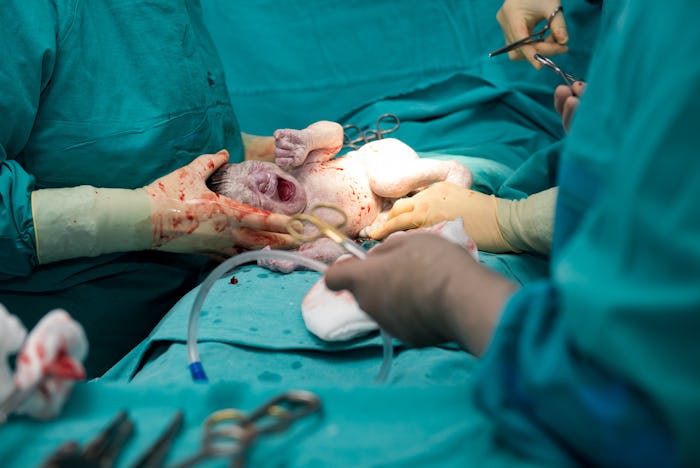Life

Who Is Most Likely To Get C-Sections?
Although some aspects of pregnancy are universal, plenty of aspects about your gestation period are unique to you. Your own health history can have a crucial impact on your pregnancy. In fact, these personal factors may even have a big effect on your delivery plan. For instance, knowing who is most likely to get C-sections can help you guess how your own labor day will go down.
First, if you have previously had a C-section delivery, then you have a greater likelihood of having a C-section for subsequent pregnancies, as noted by What To Expect. Although it's certainly possible to have a vaginal birth after C-section (VBAC), this may carry the risk of uterine rupture during delivery, as noted by the American Pregnancy Association. Your own possibility of going from C-section to a VBAC can be determined by your doctor.
Your age may affect the chances of getting a C-section. As noted on Pregnancy.org, being a first-time mother aged 35 or older may increase your odds of C-section delivery. As further noted by Pregnancy.org, this may be because older mothers tend to be in labor for longer.
Additionally, your baby may have characteristics that necessitate a C-section. For instance, babies who are about 10 pounds or larger, breech babies, and multiples are often scheduled for C-sections because a vaginal delivery may be dangerous to the mother or child, as explained by WebMD. In these cases, a C-section is kinder and safer for everyone involved.
Lastly, many maternal health conditions could affect the odds of needing a C-section. For instance, women who have uterine fibroids may need a C-section if the fibroids block her birth canal, as noted by the Office on Women's Health. In addition, having high blood pressure or diabetes may make vaginal delivery unsafe for the baby, as noted by Health Day. In general, there are many health conditions that may necessitate a cesarian delivery, so you can discuss any potential concerns with your physician. (And yes: a C-section delivery still counts as really giving birth.) Whatever the case, hopefully your delivery day will result in the one thing all moms wish for: a healthy, happy baby.